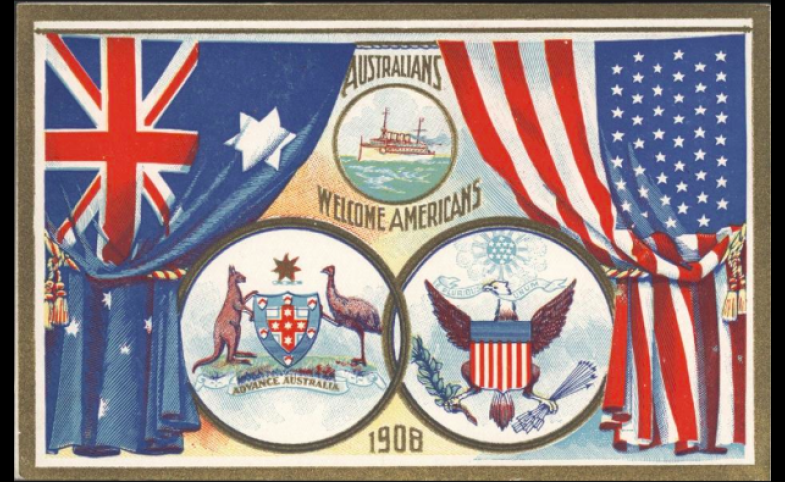The author dedicates this article to the Kombumerri People, Traditional Custodians of the Gold Coast. With the Commonwealth Games now behind us, global audiences have been awe-struck by the beauty of Australia’s beaches,...
KEEP READINGThe CPD Blog is intended to stimulate dialog among scholars and practitioners from around the world in the public diplomacy sphere. The opinions represented here are the authors' own and do not necessarily reflect CPD's views. For blogger guidelines, click here.

Shooting of Australian Student in Oklahoma Raises Questions About Perceptions of America Abroad
The recent senseless shooting of Christopher Lane, an Australian student athlete who was on a baseball scholarship at a small Oklahoma state university, is so sad and disturbing that it shakes our souls. It is hard to imagine the horror and sadness that his family and friends in Australia and Oklahoma must be experiencing at this moment. Nothing can explain why three “bored” teenagers would randomly kill a young man while he was jogging down a quiet road on a late summer day in an otherwise peaceful, small Oklahoma town. As a mother, an Oklahoma college professor, a jogger, and a baseball fan, I’m rattled by this crime like no other in recent years.
Beyond the individual atrocity, the comments made by the former Deputy Prime Minister of Australia, Tim Fischer, on CNN’s “Piers Morgan Live” on August 20, 2013, raised this terrible crime to a public diplomacy concern. Among other statements about the statistical likelihood of being shot in America versus Australia, Fischer said that Australians should think closely about going on vacation to America given our lax gun laws. This remark is just the opposite of what the U.S. government through the newly formed Corporation for Tourism Promotion is preparing to tell Australians in a soon-to-be launched tourism advertising campaign.
The Travel Promotion Act of 2009 established The Corporation for Travel Promotion, a public-private partnership that was later dubbed Brand USA.
The bill created a multi-million dollar global marketing effort to promote the U.S. as a travel destination. The resulting campaign was first launched in May 2012 in the UK, Japan, and Canada. The centerpiece of the promotional effort is a 60-second music-driven commercial known as “Land of Dreams.” According to Brand USA’s August newsletter, plans to roll out Land of Dreams in Australia are under way.
Is this an appropriate time to invite Australians to visit America, and “discover this land like never before?” Probably not. Hopefully the executive team at Brand USA will be sensitive to this international dilemma and postpone the advertising schedule.
What does this mean for public diplomacy? Obviously the random individual murder of one Australian studying in the United States won’t disrupt the excellent political relationship the U.S. enjoys with the Australian government. But, how does news coverage of the incident impact opinions about America among Australian citizens, those who may have considered traveling here and those who may never travel?
In a study to be published in next month’s issue of American Behavioral Scientist titled, “Strategic Uses of Mediated Public Diplomacy: International Reaction to U.S. Tourism Advertising,” ) my research partner Alice Kendrick of the Temerlin Advertising Institute at Southern Methodist University and I investigate one aspect of this question. In this study, we not only explored whether the Land of Dreams commercial increased desire to travel to the United States, but also if Australians expressed more positive views about America after seeing it. According to our findings, it worked on both fronts.
Results showed that people who see the tourism commercial felt more favorably about the United States, even if they never intend to visit. In the study, the Brand USA commercial appears to do double-duty for government and industry – both in terms of the intended effect of piquing interest in travel to the U.S. and as a catalyst for goodwill. We conclude in the article that tourism advertising may be a form of mediated public diplomacy.
Of course, this was all before the shooting in Oklahoma.
Despite the positive results of the Land of Dreams advertising among Australian audiences found in our study from last fall, advertising there now would be a mistake. In this case, a lesson from the brand management literature may be useful. In the face of a crisis involving the brand, regular brand advertising should be suspended.
Visit CPD's Online Library
Explore CPD's vast online database featuring the latest books, articles, speeches and information on international organizations dedicated to public diplomacy.
POPULAR ARTICLES
-
January 29
-
January 20
-
January 28
-
January 2
-
February 6
Join the Conversation
Interested in contributing to the CPD Blog? We welcome your posts. Read our guidelines and find out how you can submit blogs and photo essays >.













